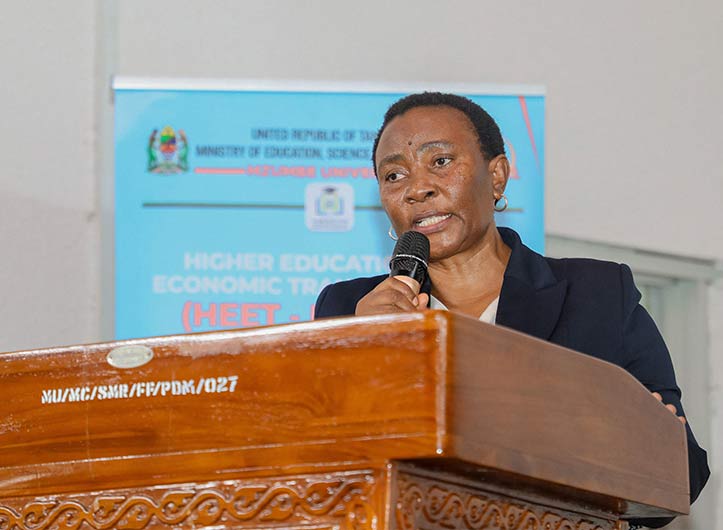Faculty Overview
The Faculty of Law was established in 2002, one year after the former Institute of Development Management (IDM-Mzumbe) was transformed into Mzumbe University. However, the teaching of law began in 1963. Since its establishment, the Faculty has had the honor of producing highly qualified graduates who have held prominent positions on the bench and managed some of the leading law firms in the country.
The faculty offers a range of programs, from undergraduate to postgraduate levels. At the undergraduate level, the faculty offers Certificate in Law, Diploma in Law, and Bachelor of Laws (LL. B) programs. At the postgraduate level, the faculty offers Master of Laws (LL.M) and Ph.D. programs. These programs are available at Mzumbe University’s main campus in Morogoro and at the Mzumbe University-Mbeya Campus in Mbeya.
The Faculty of Law is staffed by over 50 academic members specializing in diverse areas of law, including Criminal Justice, Civil Law, Commercial Law, ICT Law, Employment Law, Land Law, Family Law, International Law, Human Rights, Constitutional & Administrative Law, Evidence and Civil Procedure, Intellectual Property, and International Trade.
Our Vision
The Faculty of Law aims to be internationally recognized as a center for academic achievement and excellence in legal training, research, consultancy, legal aid, and outreach activities by 2050.
Our Mission
The mission of the Faculty of Law is to provide opportunities for the local and international community to acquire, develop, preserve, and disseminate legal knowledge, competencies, and skills through training, research, consultancy, legal aid, and outreach activities.
Faculty Administration
Dr. Seraphina Bakta
-
Ph.D. – Child Law (University of Cape Town)
-
LL.M – International Law (University of Cape Town)
-
LL.B (Mzumbe University)
Dr. Julius Cosmas
-
PhD in International Investment Law
-
Master in international Mercantile Law (Stellenbosch)
-
Bachelor in Law (UDSM)
Dr. Frank Mchomvu
-
PhD in Laws - UDSM (2020)
-
L.LM (Human Rights and Democratization in Africa) -University of Pretoria (2011)
-
LL.B - UDSM (2007)
Dr. Rosemary Mukama
-
PhD - Law (Mzumbe University)
-
LLM in Finance and Banking Law (Ruaha University College)
-
LL.B
Ms. Benadetha Iteba
-
Master of Laws degree (LLM-UDSM)
-
Bachelor of Laws degree (LL.B) - Mzumbe University
-
.
Programmes Offered by FoL
The Faculty offers’both postgraduate undergraduate Programmes.
News & Updates
Collaborations
Our Team of Staff
About Private Law Department
The Private Law Department is dedicated to exploring and advancing knowledge in areas that govern relationships between individuals and private entities. The private law department provides a robust foundation in private law principles while encouraging innovative thinking and critical analysis. We prepare our students not only for successful legal careers but also for meaningful contributions to society through their understanding and application of private law. Courses under the private law department include, contract law, investment law, family law, intellectual property law to mention but a few. The Department also hosts PhD and Masters programs in the field of private law.
About Public Law Department
The Public Law Department at the Faculty of Law is a significant academic unit dedicated to the study and research of public law, which encompasses various legal disciplines that govern the relationship between individuals and the state. Through the courses offered, the department ensures students acquire foundational legal principles on protection of democratic principles ensuring accountability, upholding of human rights and good governance. Courses under the Public law department include, Public international law, climate change and environmental law, Refugee law, Administrative law, Human Rights law to mention but a few. The Department also hosts PhD and Masters programs in the field of public law.
About Legal Aid Clinic and Moot Court
The legal aid clinic focuses on community engagement through various outreach programs aimed at promoting legal awareness to the public. These initiatives include workshops, seminars, and legal aid clinics where students and staff members provide pro bono services under the faculty’s supervision. This engagement not only benefits the community but also enhances students’ practical experience in applying their legal knowledge. The moot court unit on the other hand offers a transformative experience that bridges the gap between theoretical legal knowledge and practical application. Moot courts are more than academic activities. Student hone their advocacy skills, refine their legal research and writing abilities, and develop confidence in public speaking, all while engaging with complex legal issues in a simulated courtroom environment.
About Quality Assurance Cordination
The quality assurance coordination office at the faculty is dedicated to ensuring that our academic programs meet the highest standards of excellence and integrity, reflecting our commitment to providing a transformative educational experience for our students. The Quality Assurance Coordinator works collaboratively with faculty members, administrative staff, students and the university Quality Assurance Unit to review and develop policies and guidelines, implement best practices, and foster a culture of continuous improvement. Our commitment to quality assurance extends beyond compliance; it is about fostering a conducive learning environment where innovation thrives, and students are equipped with quality skills and knowledge necessary for their future careers in law.
Alumni
Why Study Our Programmes?
Faculty of Law alumni are among the new generation of lawyers that are becoming prominent in the legal market in Tanzania. We have competent academic staff. If one wishes to become knowledgeable, skilled and competent in law, s/he should join our programmes. Teaching methods at Faculty of Law emphasizes practice, critical thinking and problem-solving. Most of our lecturers are practitioners. It is a blend of theory and practice.
Add faculty success story here briefly








